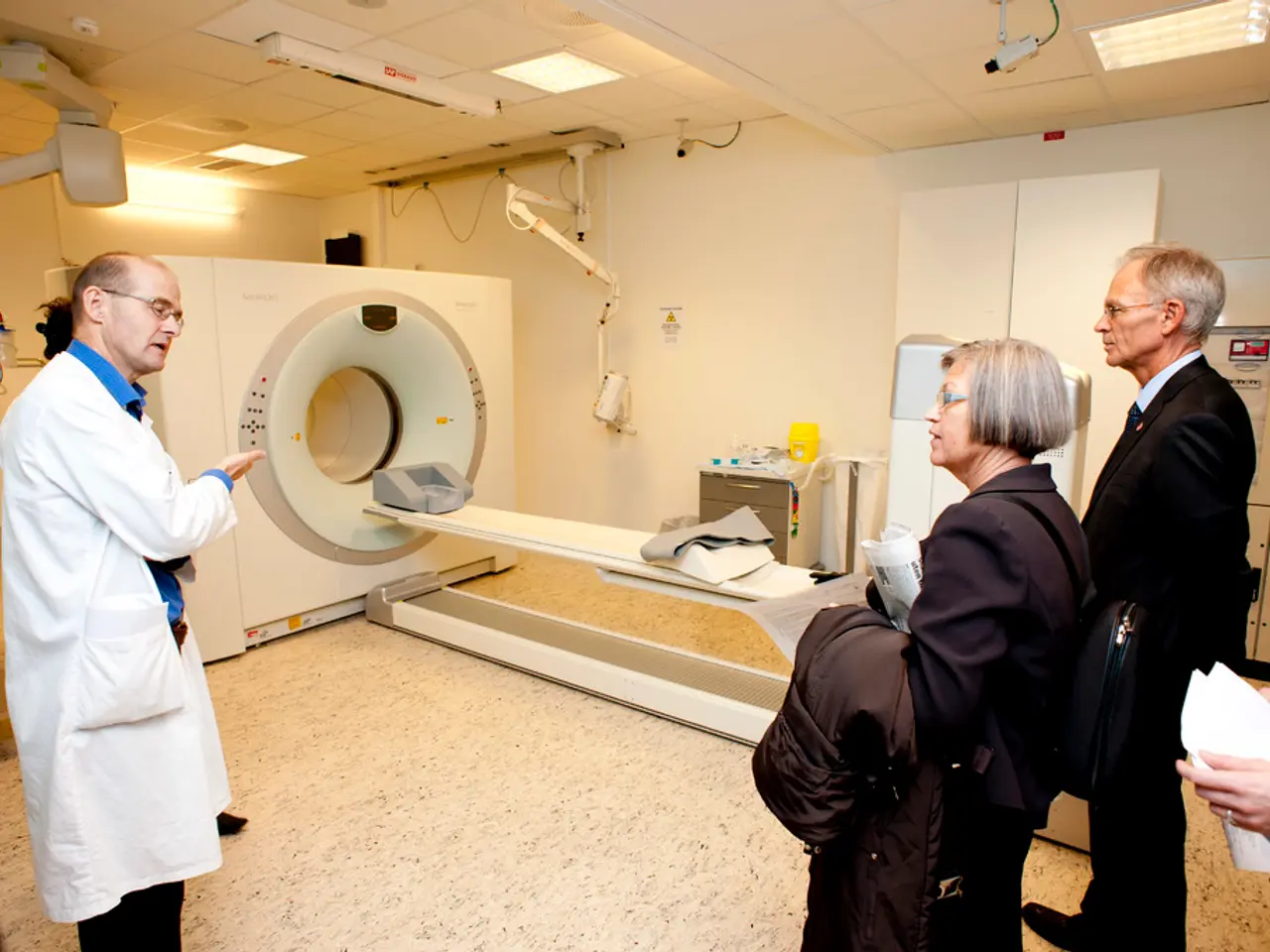Enhanced Emotional Well-being: Exploring the Unanticipated Impact of Intestinal Health on Overcoming Depression and Anxiety
A growing body of research suggests that the connection between gut health and mental well-being is more significant than previously thought. A 2017 study published in the journal Psychiatry Research found that individuals with higher levels of beneficial gut bacteria reported lower levels of anxiety and depression [1].
Improving gut health can lead to changes in mood, though results may vary. Some individuals may notice improvements within weeks, while others may take longer. Consistency in dietary and lifestyle changes is essential for long-term benefits.
The gut-brain axis, a communication network linking the gut and brain, plays a crucial role in this connection. This network is facilitated by neural pathways (vagus nerve), chemical messengers (neurotransmitters and hormones), and immune signals. The gut microbiome, comprising trillions of bacteria, produces key neurotransmitters such as serotonin (about 90% made in the gut), GABA, dopamine, and norepinephrine, all critical in regulating mood, anxiety, and cognition [1][2][4].
Greater microbial diversity in the gut is associated with reduced depressive and anxious behaviors. For instance, a Deakin University study found that pregnant women with more diverse gut microbiomes had toddlers with fewer symptoms of depression and anxiety [1]. Conversely, imbalances or low diversity in gut bacteria correlate with increased risks of anxiety, depression, bipolar disorder, and mood disorders [2][4].
To improve gut health for better mental well-being, strategies include:
- Nutrition: Consuming a diet rich in fiber (especially insoluble fiber found in broccoli stems, asparagus, dark leafy greens, beans, whole seeds, and fruit peels) feeds the gut microbiome, promoting microbial diversity and health [1].
- Prebiotics and Probiotics: Supplementing or eating foods containing beneficial bacteria and fibers that encourage their growth may help restore gut balance and reduce anxiety and depression symptoms [2].
- Stress Management: Reducing stress through meditation, deep breathing, and mindfulness can stimulate the vagus nerve, improving gut-brain communication and digestive function [3].
- Sleep Hygiene: Maintaining healthy sleep patterns supports gut health and emotional regulation [3].
- Stay Hydrated: Adequate hydration is vital for overall health, including gut health, and supports digestion and nutrient absorption.
- Consider Probiotics: Probiotic supplements can help restore gut balance, especially after antibiotic use or during periods of digestive distress. Consult a healthcare professional to identify the right strains for your needs.
- Regular Health Check-Ups: Monitoring your gut health and overall well-being through regular check-ups can help you stay proactive in managing both physical and mental health.
The gut produces other neurotransmitters, including gamma-aminobutyric acid (GABA), which plays a critical role in reducing anxiety. Chronic inflammation has been linked to various mental health disorders, including depression and anxiety. A diverse and balanced diet, rich in fiber, fruits, vegetables, and fermented foods, can promote a diverse microbiome.
Ongoing research continues to explore the potential of the microbiome in treating mental health conditions, focusing on the use of probiotics and dietary interventions to promote mental well-being, often referred to as psychobiotics. However, it's important to note that while a healthy diet can support gut health, probiotics may provide additional benefits, especially during or after antibiotic use [5].
Individuals with depression often exhibit higher levels of inflammatory markers. An imbalanced gut microbiome can contribute to increased intestinal permeability, often referred to as "leaky gut." The balance and diversity of gut bacteria can affect serotonin levels, thereby influencing mood.
The 2020 study suggested that probiotics could alleviate symptoms of anxiety and depression, indicating that gut health interventions may offer a complementary approach to traditional mental health treatments [6]. However, it's crucial to remember that while these findings are promising, more research is needed to fully understand the complex relationship between gut health and mental well-being.
References:
[1] Cryan, J. F., & Dinan, T. G. (2012). Mind–gut axis: from the effect of the gut microbiota on the brain to the psychobiotic concept. Neuropsychiatry, 3(1), 4-14.
[2] Jacka, F. N., O'Neil, A., Opie, R., Itsiopoulos, C., Cotton, S. A., Mohebbi, M., ... & Pasco, J. A. (2017). A systematic review and meta-analysis of probiotics for anxiety and depression in adults. Molecular psychiatry, 22(12), 1606-1615.
[3] Lay, T., & Hamer, P. (2010). Stress, the gut microbiome, and major depression: a hypothesis. Gut Pathogens, 2, 1.
[4] Mayer, E. A. (2008). The neurobiology of the gut-brain axis: from stress to mood and cognition. Neuro Endocrinology Letters, 29(3), 164-170.
[5] Kau, H. L., & Monteiro, R. (2011). Diet and the gut microbiota. Nature Reviews. Gastroenterology & Hepatology, 8(11), 649-659.
[6] Desbonnet, L., & Pérusse, L. (2020). Probiotics and the gut-brain axis: implications for the treatment of anxiety and depression. Journal of Physiology and Pharmacology, 71(6), 487-496.
The growing connection between gut health and mental well-being is being increasingly recognized, with research suggesting that an improvement in gut health could potentially lead to changes in mood [1]. Consuming a diet rich in fiber and certain nutrients supports a diverse and healthy gut microbiome, which in turn can reduce anxiety and depression symptoms [1].
Incorporating prebiotics and probiotics into your diet or supplement regimen can also help balance gut bacteria, promoting mental well-being [2]. Managing stress through mindfulness, meditation, and deep breathing can stimulate the vagus nerve, thereby improving gut-brain communication [3].
Regular exercise, yoga, and fitness routines are additional strategies for improving both physical and mental health, as they can indirectly benefit gut health and emotional regulation [3]. Maintaining healthy sleep patterns, staying hydrated, and regular health check-ups are also crucial for maintaining overall well-being [5].
While the role of probiotics in treating mental health conditions is promising, ongoing research is necessary to fully understand the complex relationship between gut health and mental well-being [6]. A balanced diet, rich in fiber, fruits, vegetables, and fermented foods, can contribute to a diverse microbiome, promoting good gut health and potentially reducing the risk of anxiety and depression [5].




